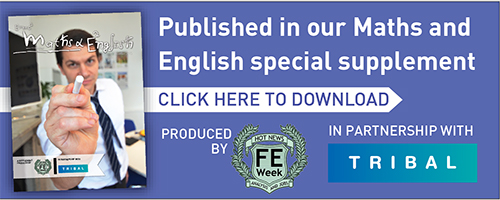Young people need to learn from employers why they need better literacy skills to thrive in the workplace, says Sally Melvin
The Organisation for Economic Co-operation and Development (OECD) report’s findings are concerning and paint an unfortunate picture of the reality facing today’s young people.
Being fully literate is surely the right of every young person, to enable them to take a full and useful part in society throughout their adult lives.
As a society, we must work together to address the shortcomings of our education system and ensure all students leave school with a sufficient grasp of English.
According to some businesses, employers are from Mars and young people are from Venus.”
But literacy is about more than learning to read and write.
Being able to communicate effectively, speak articulately in front of a variety of audiences, work well alongside others and interpret information are all important skills that young people should be learning.
These are skills which make one literate in the work place.
With almost one million 16-24-year-olds currently unemployed, I believe that equipping students with a full range of literacy skills that are linked to their employability must be an integral part of their education.
According to some businesses, employers are from Mars and young people are from Venus.
How do we bring them into the same orbit?
Research shows there is a direct link between the social aspects of a child’s life and their confidence and level of aspiration.
How do we increase young peoples’ confidence and raise their aspirations for their future?
Teaching literacy skills is very important, but in isolation this is not enough.
To achieve a better understanding on both sides, we need to bring these two groups together.
Young people need to spend time with adults from the world of work, in order to put the literacy skills they are learning into a real life context.
This would give them better understanding of how important literacy is for their future.
The National Literacy Trust runs a programme called Words for Work which seeks to do just that.
Its aim is to improve young people’s literacy skills and increase their understanding of the world of work.
The key to the success of the project is the involvement of volunteers from the local business community.
The volunteers work in partnership with students, providing advice and acting as role models during a series of shared tasks.
Evaluation of the programme shows this kind of intervention can have a really positive effect on the young people involved.
According to the teachers, over 90 per cent of the students improved their literacy skills.
The students’ understanding of the use of literacy skills in the workplace doubled and 80 per cent of young people felt they now understood the skills they need to get the job they want.
Everyone agrees schools and FE colleges should teach their students the literacy skills they will need to function fully as adults.
I believe alongside this, they must provide opportunities for students to experience and prepare for the workplace.
Sally Melvin, senior programme manager at the National Literacy Trust









Your thoughts